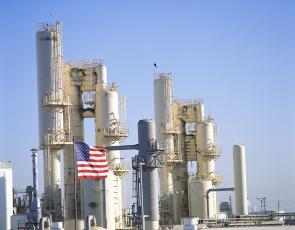WASHINGTON, D.C. — American Fuel & Petrochemical Manufacturers (AFPM) President and CEO Chet Thompson today issued the following statement on NHTSA’s newly finalized Corporate Average Fuel Economy (CAFE) standards:
“This final rule is yet another Biden administration policy that furthers its effort to force the electrification of the transportation fleet despite what consumers want or need in a vehicle. It is unlawful and bad for consumers, the U.S. economy and our national security.”
What to know:
- CAFE is part of the administration’s whole-of-government effort to force gas cars out of the market, taking vehicle choice away from American consumers. The only way to meet the standards—50.4 MPG by 2031—is with a fleet dominated by EVs.
- NHTSA acted unlawfully in setting the standards. EVs cannot be included in the baseline when setting CAFE standards.
- Congress, through EPCA, instructed NHTSA to set standards feasible for gas- and diesel-powered vehicles. EPCA says plainly that NHTSA “may not consider” the fuel economy of electric vehicles and “dual-fueled vehicles” running on electricity when setting fuel-economy standards for passenger cars.
- In direct contradiction, NHTSA proposed MPG standards that include EVs in their baseline and modeling, and grants EVs significant MPG credit.
- In direct contradiction, NHTSA proposed MPG standards that include EVs in their baseline and modeling, and grants EVs significant MPG credit.
- Congress, through EPCA, instructed NHTSA to set standards feasible for gas- and diesel-powered vehicles. EPCA says plainly that NHTSA “may not consider” the fuel economy of electric vehicles and “dual-fueled vehicles” running on electricity when setting fuel-economy standards for passenger cars.
- CAFE will cost consumers far more than anything government considered when proposing the rule.
- A CAFE compliance scenario that depends on significantly more EVs represents far greater costs to the U.S. consumers and disruption to the U.S. economy than NHTSA presented.
- NHTSA did not thoroughly consider costs to upgrade and expand the grid, which is needed to support CAFE compliance.
- The public did not have an opportunity to assess how DOE’s final petroleum equivalency factor (PEF) will impact CAFE compliance costs (potential for greater compliance penalties and vehicle cross-subsidization).
- A CAFE compliance scenario that depends on significantly more EVs represents far greater costs to the U.S. consumers and disruption to the U.S. economy than NHTSA presented.
The American Fuel & Petrochemical Manufacturers (AFPM) is the leading trade association representing the makers of the fuels that keep us moving, the petrochemicals that are the essential building blocks for modern life, and the midstream companies that get our feedstocks and products where they need to go. We make the products that make life better, safer and more sustainable — we make progress.


